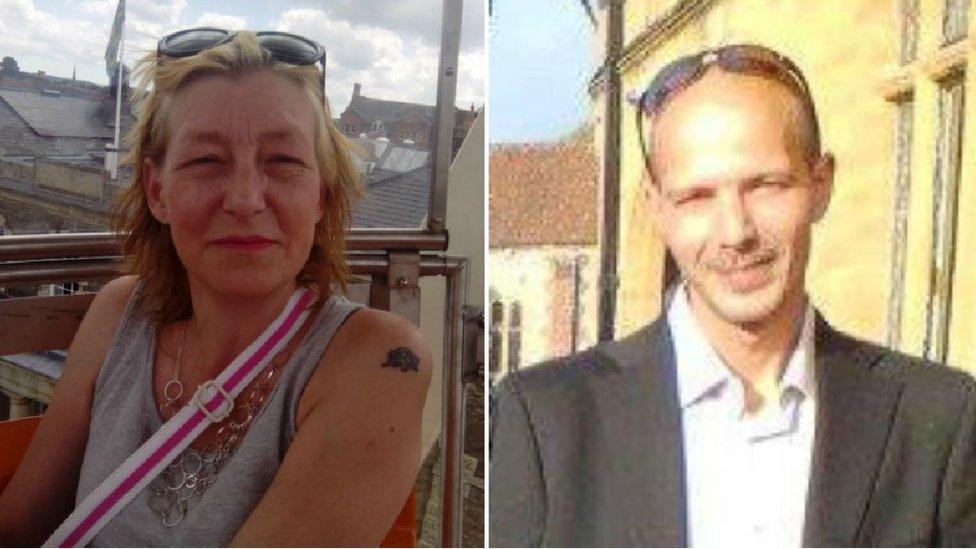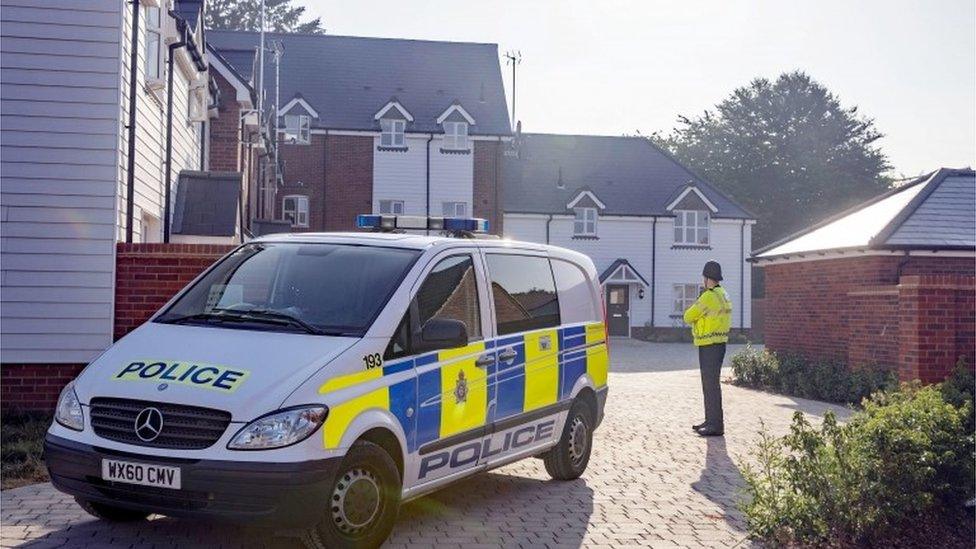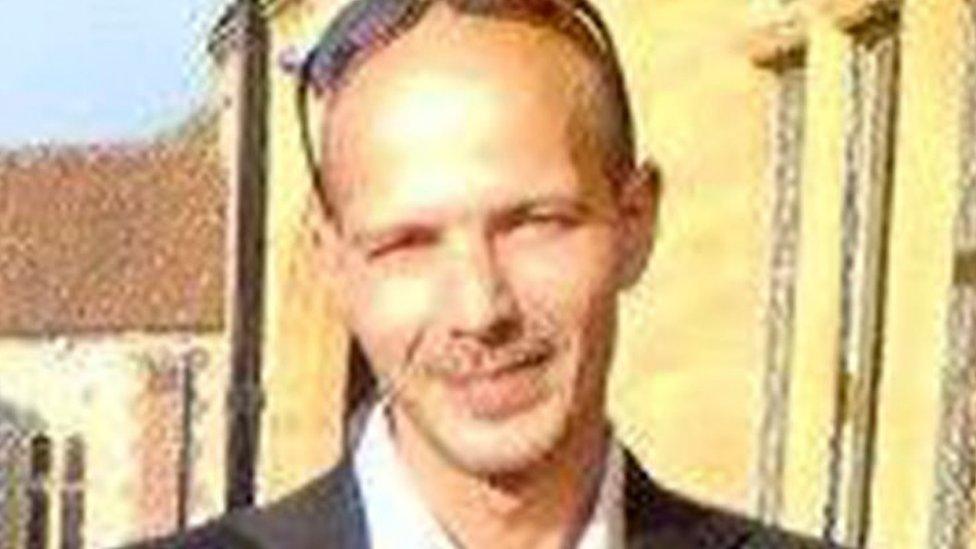Amesbury Novichok searches see 400 items seized
- Published

Dawn Sturgess died last weekend and Charlie Rowley remains in hospital
About 400 items have been recovered by police investigating the Novichok poisoning of a couple in Wiltshire.
Earlier officers investigating the murder of Dawn Sturgess and poisoning of Charlie Rowley took four vehicles from two locations - a police garage in Swindon and Salisbury ambulance depot.
On Friday detectives said the fatal Novichok dose came from a bottle found at Mr Rowley's Amesbury house.
Police warned searches of the area could last months.
Mr Rowley remains critically ill in hospital.
Assistant Metropolitan Police commissioner Neil Basu described the poisoning investigations as "one of the most complex and difficult that UK policing has ever faced".
'Painstaking and vital'
Mr Basu who is the National Lead for Counter Terrorism (CT) Policing in the UK added: "The work being carried out is extremely important.
"Not only are we trying to solve an extremely serious crime that has been committed, but we're also working to identify any potential outstanding risks to the public, all whilst ensuring that all those involved in the search process are not themselves exposed to any risk of contamination.
"It is painstaking and vital work, which unfortunately takes a very long time to complete, but I am sure that the public understands why it is absolutely necessary."

The bottle was found at Mr Rowley's home in Amesbury
He added searches were being hampered by the hot weather as investigators had to wear protective clothing and were limited to the amount of time they could spend in special suits because of the heat.
Work involves taking swabs from surfaces and ensuring the process does not contaminate a wider area, police said.
All the items are being transported to the labs at Porton Down for analysis.
Tests are ongoing to establish whether the couple were poisoned with the same batch of Novichok poison used in the attack against Sergei and Yulia Skripal in March.
- Published13 July 2018

- Published12 July 2018

- Published11 July 2018
